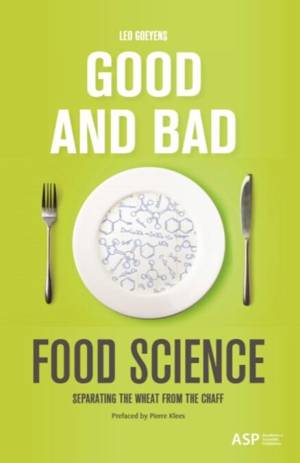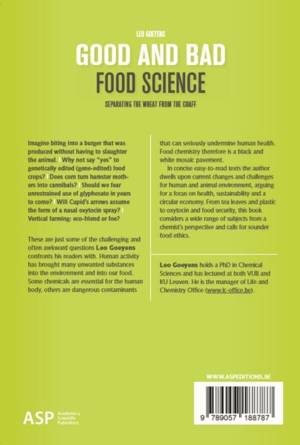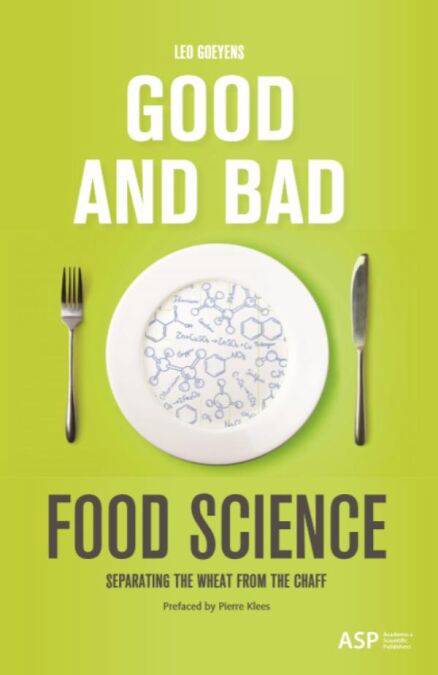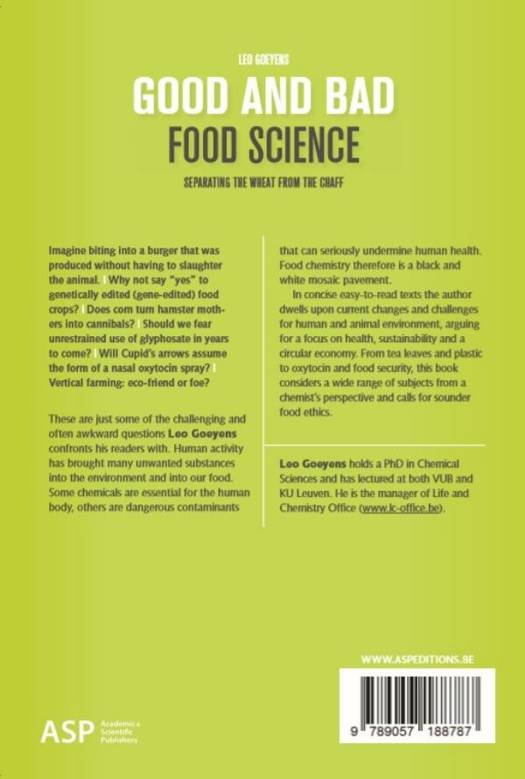
Je cadeautjes zeker op tijd in huis hebben voor de feestdagen? Kom langs in onze winkels en vind het perfecte geschenk!
- Afhalen na 1 uur in een winkel met voorraad
- Gratis thuislevering in België vanaf € 30
- Ruim aanbod met 7 miljoen producten
Je cadeautjes zeker op tijd in huis hebben voor de feestdagen? Kom langs in onze winkels en vind het perfecte geschenk!
- Afhalen na 1 uur in een winkel met voorraad
- Gratis thuislevering in België vanaf € 30
- Ruim aanbod met 7 miljoen producten
Zoeken


€ 30,00
+ 30 punten
Omschrijving
Imagine biting into a burger that was produced without having to slaughter the animal. Why not say "yes" to genetically edited (gene-edited) food crops?
Does corn turn hamster mothers into cannibals?
Should we fear unrestrained use of glyphosate in years to come?
Will Cupid's arrows assume the form of a nasal oxytocin spray?
Vertical farming: eco-friend or foe?
These are just some of the challenging and often awkward questions Leo Goeyens confronts his readers with. Human activity has brought many unwanted substances into the environment and into our food. Some chemicals are essential for the human body, others are dangerous contaminants that can seriously undermine human health. Food chemistry therefore is a black and white mosaic pavement.
In concise easy-to-read texts the author dwells upon current changes and challenges for human and animal environment, arguing for a focus on health, sustainability and a circular economy. From tea leaves and plastic to oxytocin and food security, this book considers a wide range of subjects from a chemist's perspective and calls for sounder food ethics.
Does corn turn hamster mothers into cannibals?
Should we fear unrestrained use of glyphosate in years to come?
Will Cupid's arrows assume the form of a nasal oxytocin spray?
Vertical farming: eco-friend or foe?
These are just some of the challenging and often awkward questions Leo Goeyens confronts his readers with. Human activity has brought many unwanted substances into the environment and into our food. Some chemicals are essential for the human body, others are dangerous contaminants that can seriously undermine human health. Food chemistry therefore is a black and white mosaic pavement.
In concise easy-to-read texts the author dwells upon current changes and challenges for human and animal environment, arguing for a focus on health, sustainability and a circular economy. From tea leaves and plastic to oxytocin and food security, this book considers a wide range of subjects from a chemist's perspective and calls for sounder food ethics.
Specificaties
Betrokkenen
- Auteur(s):
- Uitgeverij:
Inhoud
- Aantal bladzijden:
- 366
- Taal:
- Engels
Eigenschappen
- Productcode (EAN):
- 9789057186691
- Verschijningsdatum:
- 4/10/2019
- Uitvoering:
- E-book
- Formaat:
- ePub

Alleen bij Standaard Boekhandel
+ 30 punten op je klantenkaart van Standaard Boekhandel
Beoordelingen
We publiceren alleen reviews die voldoen aan de voorwaarden voor reviews. Bekijk onze voorwaarden voor reviews.










